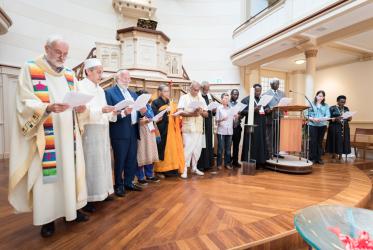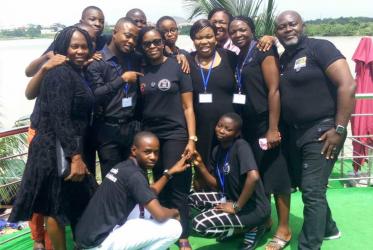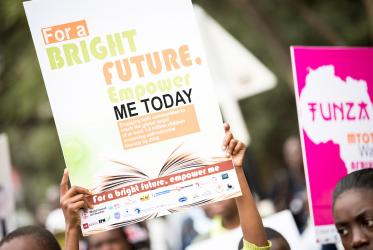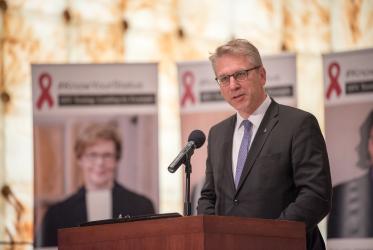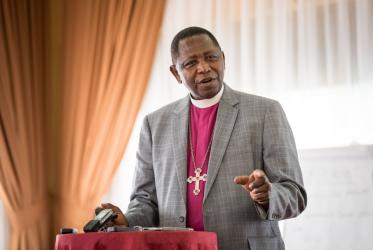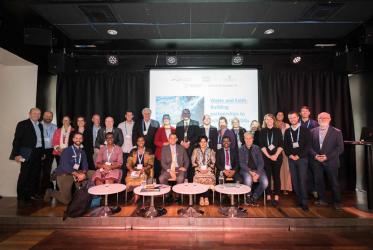Displaying 121 - 140 of 251
29 August 2018
What difference does dressing in black make?
02 August 2018
WCC developing toolkit for health-promoting churches
02 August 2018
Working toward an AIDS-free generation
26 July 2018
Building bridges of faith in the HIV response
25 July 2018
Building Bridges in the global HIV response
25 July 2018
Congolese churches respond to Ebola outbreak
01 June 2018
Conversation on HIV “must continue,” Faith Networking Zone shows
07 December 2017
Emily Welty: tide of hope for a world free from nuclear weapons
19 September 2017
“It will take faith to get down to business, to overcome HIV and AIDS”
13 September 2017
“Facing the storm of HIV, we can move together, be agents of change”
06 September 2017




